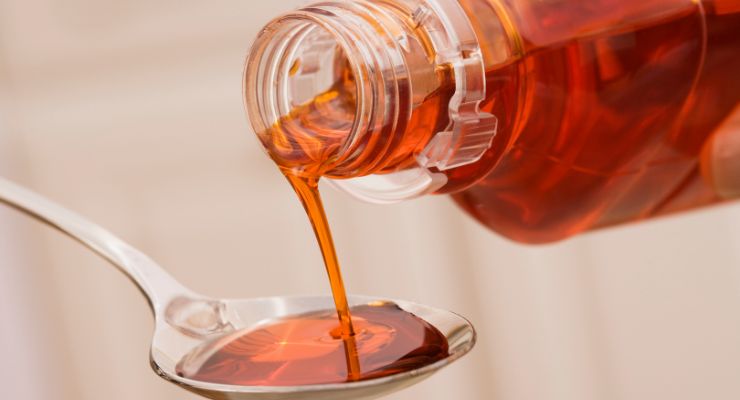Market Updates
Baltimore CBP Seizes $688k Shipment of Illegal Weight Gain Product
Apetamin, which is imported from overseas, contains an antihistamine linked to serious adverse events.

By: Mike Montemarano

Baltimore Customs and Border Protection (CBP) seized a shipment of Apetamin, a product which contains a prescription antihistamine, which is being illegally marketed online as a dietary supplement for purported weight gain benefits. The seizure took place on April 28.
The shipment contained 25,200 bottles of the product, at 200ml each, amounting to a value of $688,000. The shipment was initially inspected on April 3, and was labeled “African Black Soap,” and was destined for shipment to an address in the Bronx, NY.
The marketing of Apetamin is on the rise, according to both CBP and the U.S. Food and Drug Administration (FDA).
“Apetamin is a relatively new phenomenon here in the U.S., but one that reportedly poses a serious health and safety threat to U.S. consumers. Customs and Border Protection and our FDA partners will continue to identify these shipments and take these dangerous, unapproved products out of circulation,” said Adam Rottman, area port director for CBP’s Area Port of Baltimore. “Besides, I think many of us have found out by now that loading up on fast food is a really effective way to gain weight.”
Apetamin is manufactured by a supplement company in India called TIL Healthcare, and contains a combination of cyproheptadine, a prescription antihistamine, along with the amino acid lysine, and vitamins. It is often found in either a syrup or a pill format.
Marketing of the product on social media, which has seen a significant uptick lately according to FDA and CBP, is targeting social media users who are seeking quick weight gains to achieve a curvy physique.
Cyproheptadine is only available through a doctor’s prescription in the U.S., and Apetamin has never been reviewed for safety and effectiveness.
A Constant Struggle
According to Marc Ullman, of counsel at Rivkin Radler, the news of the Apetamin seizure is a familiar refrain. Despite this, “the [weight loss] category remains one that is constantly in demand,” he said. Moreover, for vulnerable product categories, this is par for the course, he said.
“I don’t believe that FDA and DEA have become more active in this area, there is constant activity at the border trying to interdict unlawful products like Apetamin. Weight loss, male sexual enhancement, and extreme sports nutrition products are subject to close inspection at the point of entry into the U.S. as they are particularly vulnerable to criminals including undeclared active pharmaceutical ingredients in products improperly labeled as dietary supplements.”
Despite the notable size of the product seizure, it’s unlikely that this will be the last instance in which Apetamin, or other illegal imitation products, reach the U.S., Ullman said.
While FDA and CBP drew attention to the promotion of Apetamin via online retailers and sellers on social media, Ullman expects that the level of online monitoring for these and other illegal products will remain relatively consistent.
Side Effects
Because cyproheptadine is a strong antihistamine, it can cause sedation, cognitive impairment, dizziness, and low blood pressure. Within six hours, an antihistamine overdose can result in disorientation and confusion, hallucinations, convulsions, decreased breath and heart rates, coma, and death.
For these reasons, it may also impair mental alertness and motor coordination, making it dangerous to drive a car or operate machinery. It may also have an additive effect when used with alcohol or any other central nervous system depressants, according to FDA.
The agency reviewed reports from its Adverse Event Reporting System, as well as other published literature. Apetamin use by young adults has been linked to nervous system disorders, cardiac disorders, and liver injury, and there is concern that the number of consumers experiencing these side effects may be higher than on record due to underreporting.
One case study by four doctors at George Washington School of Medicine and Health Sciences found that a person developed autoimmune hepatitis, after she was admitted to the hospital with fatigue, right-sided abdominal discomfort, and jaundice following six weeks of daily Apetamin use. The condition, which is treated with corticosteroids, can cause liver failure and be fatal if left untreated.


